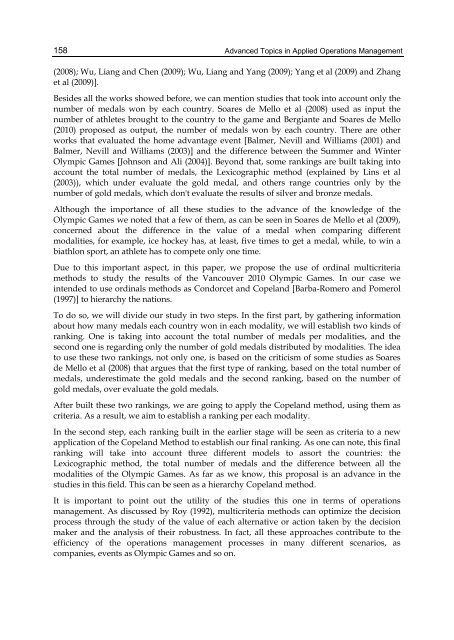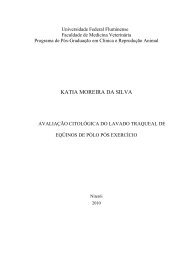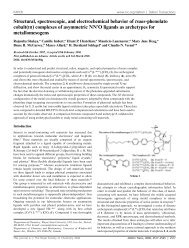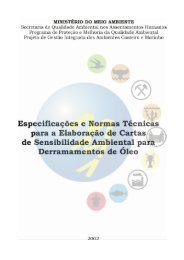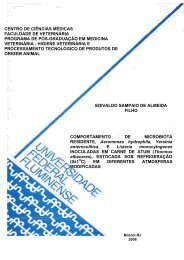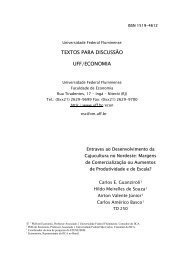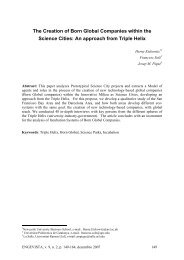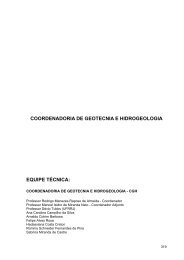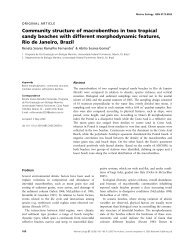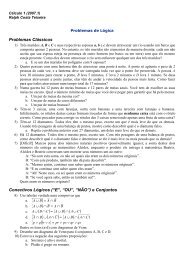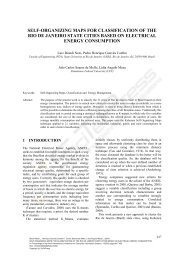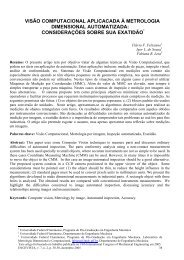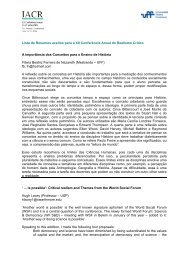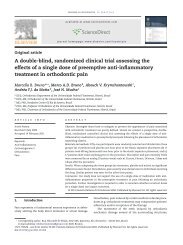A Ranking for the Vancouver 2010 Winter Olympic Games ... - UFF
A Ranking for the Vancouver 2010 Winter Olympic Games ... - UFF
A Ranking for the Vancouver 2010 Winter Olympic Games ... - UFF
You also want an ePaper? Increase the reach of your titles
YUMPU automatically turns print PDFs into web optimized ePapers that Google loves.
158<br />
Advanced Topics in Applied Operations Management<br />
(2008); Wu, Liang and Chen (2009); Wu, Liang and Yang (2009); Yang et al (2009) and Zhang<br />
et al (2009)].<br />
Besides all <strong>the</strong> works showed be<strong>for</strong>e, we can mention studies that took into account only <strong>the</strong><br />
number of medals won by each country. Soares de Mello et al (2008) used as input <strong>the</strong><br />
number of athletes brought to <strong>the</strong> country to <strong>the</strong> game and Bergiante and Soares de Mello<br />
(<strong>2010</strong>) proposed as output, <strong>the</strong> number of medals won by each country. There are o<strong>the</strong>r<br />
works that evaluated <strong>the</strong> home advantage event [Balmer, Nevill and Williams (2001) and<br />
Balmer, Nevill and Williams (2003)] and <strong>the</strong> difference between <strong>the</strong> Summer and <strong>Winter</strong><br />
<strong>Olympic</strong> <strong>Games</strong> [Johnson and Ali (2004)]. Beyond that, some rankings are built taking into<br />
account <strong>the</strong> total number of medals, <strong>the</strong> Lexicographic method (explained by Lins et al<br />
(2003)), which under evaluate <strong>the</strong> gold medal, and o<strong>the</strong>rs range countries only by <strong>the</strong><br />
number of gold medals, which don't evaluate <strong>the</strong> results of silver and bronze medals.<br />
Although <strong>the</strong> importance of all <strong>the</strong>se studies to <strong>the</strong> advance of <strong>the</strong> knowledge of <strong>the</strong><br />
<strong>Olympic</strong> <strong>Games</strong> we noted that a few of <strong>the</strong>m, as can be seen in Soares de Mello et al (2009),<br />
concerned about <strong>the</strong> difference in <strong>the</strong> value of a medal when comparing different<br />
modalities, <strong>for</strong> example, ice hockey has, at least, five times to get a medal, while, to win a<br />
biathlon sport, an athlete has to compete only one time.<br />
Due to this important aspect, in this paper, we propose <strong>the</strong> use of ordinal multicriteria<br />
methods to study <strong>the</strong> results of <strong>the</strong> <strong>Vancouver</strong> <strong>2010</strong> <strong>Olympic</strong> <strong>Games</strong>. In our case we<br />
intended to use ordinals methods as Condorcet and Copeland [Barba-Romero and Pomerol<br />
(1997)] to hierarchy <strong>the</strong> nations.<br />
To do so, we will divide our study in two steps. In <strong>the</strong> first part, by ga<strong>the</strong>ring in<strong>for</strong>mation<br />
about how many medals each country won in each modality, we will establish two kinds of<br />
ranking. One is taking into account <strong>the</strong> total number of medals per modalities, and <strong>the</strong><br />
second one is regarding only <strong>the</strong> number of gold medals distributed by modalities. The idea<br />
to use <strong>the</strong>se two rankings, not only one, is based on <strong>the</strong> criticism of some studies as Soares<br />
de Mello et al (2008) that argues that <strong>the</strong> first type of ranking, based on <strong>the</strong> total number of<br />
medals, underestimate <strong>the</strong> gold medals and <strong>the</strong> second ranking, based on <strong>the</strong> number of<br />
gold medals, over evaluate <strong>the</strong> gold medals.<br />
After built <strong>the</strong>se two rankings, we are going to apply <strong>the</strong> Copeland method, using <strong>the</strong>m as<br />
criteria. As a result, we aim to establish a ranking per each modality.<br />
In <strong>the</strong> second step, each ranking built in <strong>the</strong> earlier stage will be seen as criteria to a new<br />
application of <strong>the</strong> Copeland Method to establish our final ranking. As one can note, this final<br />
ranking will take into account three different models to assort <strong>the</strong> countries: <strong>the</strong><br />
Lexicographic method, <strong>the</strong> total number of medals and <strong>the</strong> difference between all <strong>the</strong><br />
modalities of <strong>the</strong> <strong>Olympic</strong> <strong>Games</strong>. As far as we know, this proposal is an advance in <strong>the</strong><br />
studies in this field. This can be seen as a hierarchy Copeland method.<br />
It is important to point out <strong>the</strong> utility of <strong>the</strong> studies this one in terms of operations<br />
management. As discussed by Roy (1992), multicriteria methods can optimize <strong>the</strong> decision<br />
process through <strong>the</strong> study of <strong>the</strong> value of each alternative or action taken by <strong>the</strong> decision<br />
maker and <strong>the</strong> analysis of <strong>the</strong>ir robustness. In fact, all <strong>the</strong>se approaches contribute to <strong>the</strong><br />
efficiency of <strong>the</strong> operations management processes in many different scenarios, as<br />
companies, events as <strong>Olympic</strong> <strong>Games</strong> and so on.


